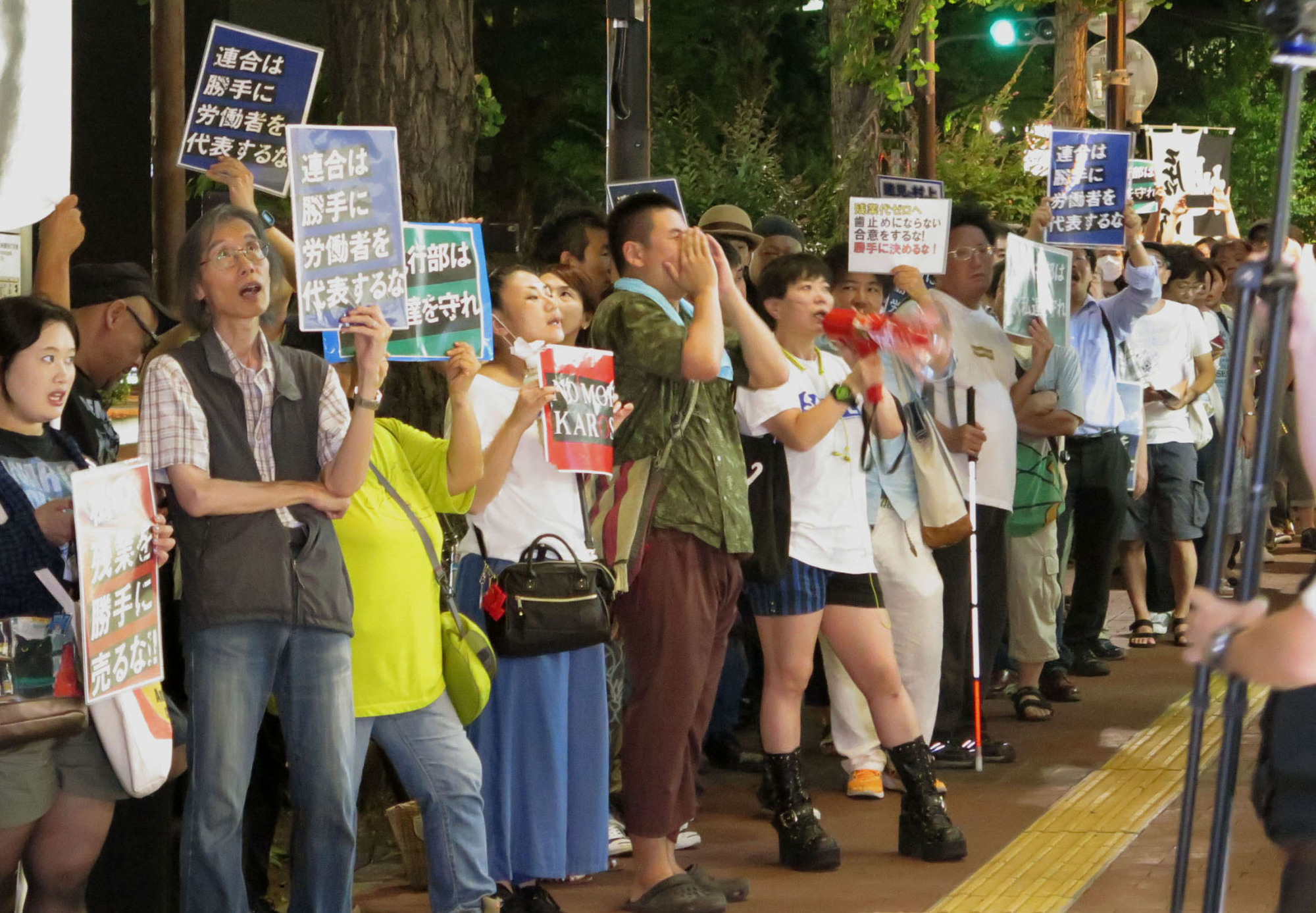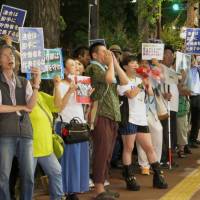About 150 people gathered Wednesday outside the offices of the nation's largest labor federation to protest the government's contentious proposal of adopting merit-based pay for certain highly skilled workers.
The Japanese Trade Union Confederation (Rengo) told Prime Minister Shinzo Abe last week that measures to protect workers’ health must be strengthened if the government intends to proceed with amendments of the Labor Standards Law to adopt the so-called white-collar overtime exemption system. This was seen as effectively accepting the government’s proposal.
But the protesters outside Rengo headquarters in Tokyo called for the federation to withdraw the request immediately, as they put up signs that read "Don't represent workers arbitrarily" and "Protect workers."
"It can't be right that Rengo agrees to labor policies that only benefit employers. (Rengo) should really rethink its role," said a man in his 30s.
“Rengo has handled this issue in a unilateral way. If it’s an organization representing various labor unions, it needs to explain more,” said a man in his 50s who works at a cleaning firm.
With the new proposal, certain highly skilled workers with an annual income of at least ¥10.75 million will be paid based on performance, so they won't get overtime pay.
This will allow them to work at their own discretion and more flexibly, the government has said. But opposition parties have criticized the bill as a “zero overtime pay bill” that will result in a workplace hazard infamous in Japan: overwork.
Rengo has requested more steps to secure workers' health, such as making it mandatory for them to rest at least 104 days a year.




